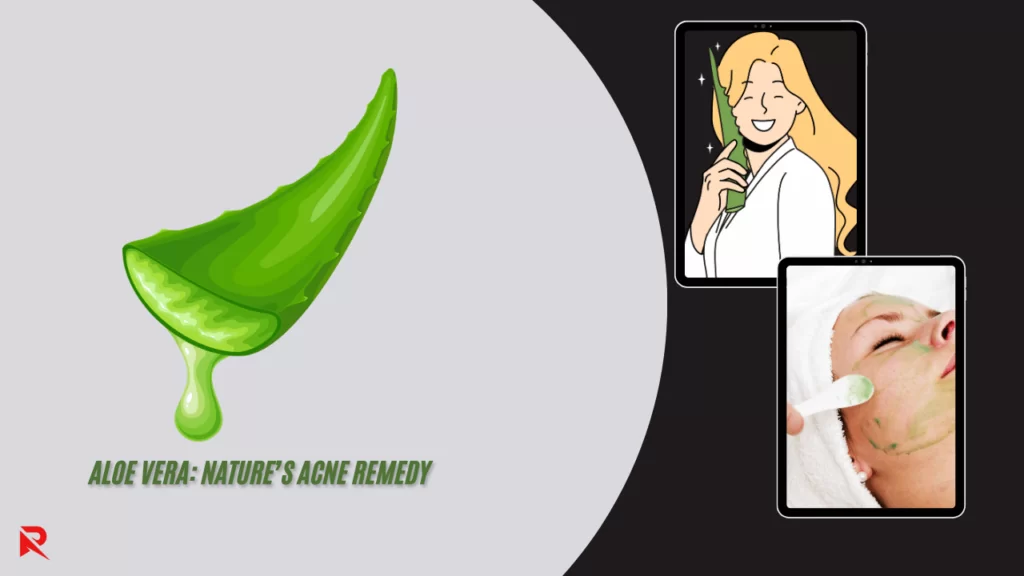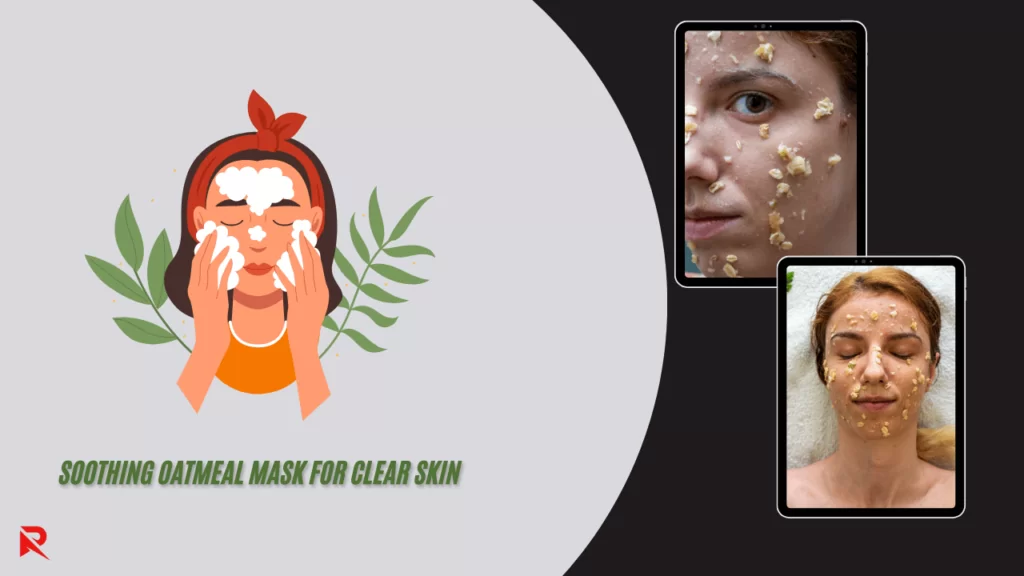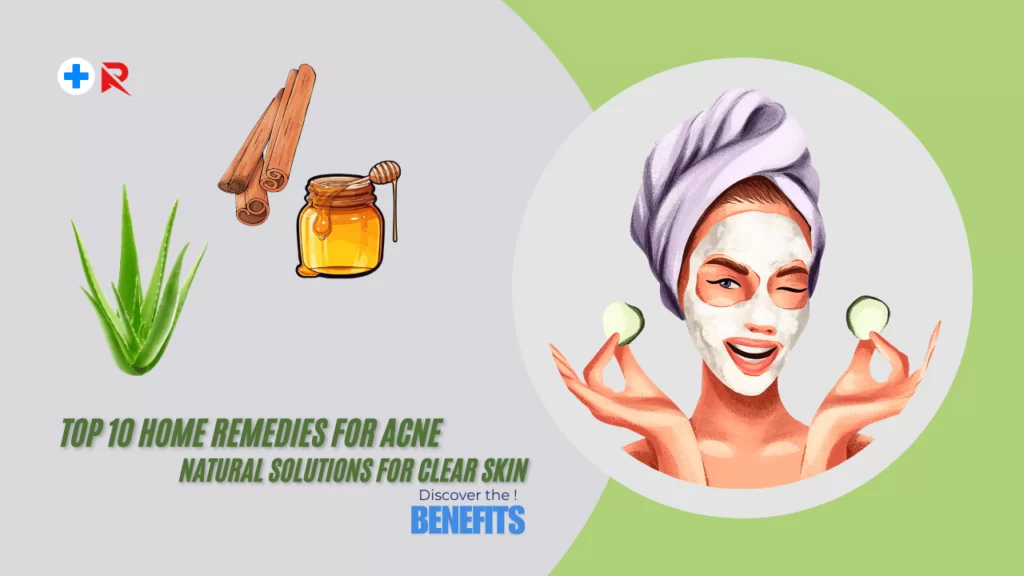If you see tiny holes on the skin’s surface when gazing in the mirror, make sure they do not clog up. You will get acne if that takes place. It is a frequent skin ailment that causes blackheads, whiteheads, and obstinate pimples. Acne may be caused by hormonal fluctuations, stress, food, and some medicines. It can be unpleasant and irritating. Acne can often be treated with Skincare for acne-prone skin. However, you may also attempt home remedies for acne to lessen acne, if you trust in their potential.
According to the Trusted Source, acne affects an estimated 85% of young people worldwide, making it one of the most prevalent skin diseases.
Although the most effective acne treatments are traditional remedies such as benzoyl peroxide, niacinamide, or salicylic acid, they may be costly and have unfavourable side effects including dryness, redness, and irritation.
This has led a lot of individuals to attempt natural acne remedies at home. Indeed, according to a 2017 survey, 77% of people with acne have attempted alternative acne treatments.
The skin’s pores are linked to a gland called the sebaceous gland, which secretes sebum, an oil-like material. Dead skin cells and oil buildup in your skin’s pores is the first sign of acne.
Excessive sebum production may block pores. The bacterium Propionibacterium acnes, or P. acnes, may then flourish in this perfect habitat. Acne is caused by white blood cells (WBCs) attacking this bacterium.
Acne outbreaks may also result from a number of other circumstances. These include of factors including food, stress, hormone fluctuations, and heredity.
Many home cures are not supported by science, and further study is required to determine their efficacy. However, there are still solutions available to you if you’re searching for alternative therapies.
This article examines 10 well-liked DIY acne treatments.
Apple Cider Vinegar for Skin Purification
- What It Does: Studies have shown that the acetic, lactic, citric, and succinic acids found in apple cider vinegar (ACV) eliminate acne-causing bacteria and lessen scarring.
- How to Use: Use a cotton ball to apply a mixture of one part ACV and three parts water, then rinse off after five to ten minutes. By doing this, the skin’s pH equilibrium may be preserved while pollutants are eliminated. Use carefully to prevent irritation, and if you have sensitive skin, think about doing a patch test first before applying on your face.

Honey and Cinnamon Mask for Anti-Inflammation
- What It Does: Antioxidant-rich honey and cinnamon have strong antibacterial and anti-inflammatory qualities that may help lessen acne-related inflammation.
- How to Use: Make a paste by combining 1 teaspoon of cinnamon and 2 tablespoons of honey. After applying, leave the face for ten to fifteen minutes, and then thoroughly rinse.
Additionally, honey locks in moisture by acting as a humectant, which is especially advantageous for dry skin types.
Tea Tree Oil Spot Treatment
- What It Does: Tea tree oil is a popular acne treatment that helps lessen redness, swelling, and irritation because of its antibacterial and anti-inflammatory properties.
- How to Use: Using a cotton swab, add a few drops of tea tree oil to 12 drops of a carrier oil (such as coconut or olive oil) straight on pimples. To have the optimum benefits, leave it on overnight.
Advice: To avoid irritating your skin, don’t use undiluted tea tree oil due to its strength.

Aloe Vera Gel for Cooling and Healing
- How It Works: Aloe vera is well-known for its calming, cooling properties as well as its capacity to aid in healing. It contains a lot of sulphur and salicylic acid, two substances that are often used to treat acne.
- How to Use: Apply the aloe vera gel straight to the skin after scrubbing it off the leaf. Allow it to rest overnight, or if used during the day, rinse it off after 30 minutes.
Tip: Add a little bit of turmeric powder, another anti-inflammatory substance, to aloe vera for further advantages.
The Antioxidant Power of Green Tea
- What It Does: Green tea is a great remedy for acne-prone skin since it is strong in antioxidants, especially epigallocatechin gallate (EGCG), which lowers inflammation and sebum production.
- How to Use: Apply the cooled green tea to the skin using a cotton ball. As an alternative, create a calming Anti-bacterial face masks by combining the green tea leaves with honey.
Advice: Regularly consuming green tea may also improve the condition of your skin by preventing acne from the inside out.
Witch Hazel for Pore and Oil Reduction
- What It Does: Witch hazel has tannins and astringent qualities that help constrict pores and remove excess oil, two primary causes of acne.
- How to Apply: Gently dab the witch natural medicine series cotton pad onto dry, clean skin. Before using additional skincare products, use it as a toner.
Tip: To avoid over-drying the skin, use witch hazel without alcohol.
Zinc Supplements for Internal Support:
- What It Does: Zinc is an essential element that lessens inflammation, boosts immunity, and may prevent acne. According to studies, zinc levels are often decreased in acne sufferers.
- How to Use: Consume foods high in zinc, such as lentils and pumpkin seeds, or take zinc supplements as prescribed by a doctor.
Advice: Since excessive zinc levels might result in adverse effects like nausea, don’t take more than the suggested amount.
Using Lemon Juice as a Natural Scrub
- What It Does: Citrus acid, which is abundant in lemon juice, has exfoliating properties of its own. Acne germs on the skin’s surface may be decreased by its antibacterial qualities.
- How to Use It: Apply diluted lemon Dr. Berg water to the skin, let it sit for ten minutes, and then rinse it off. Dead skin cells may be exfoliated and pores can be cleared with this therapy. Lemon juice might make you more photosensitive if it is exposed to sunshine, so only use it at night.
Jojoba Oil for Balancing and Moisturising
- What It Does: Jojoba oil may help control oil production without blocking pores since it closely matches the skin’s natural sebum. Additionally, it has anti-inflammatory qualities that may help calm skin prone to acne.
- How To Use: Either combine a little amount of THE HEALTHY ojoba oil with your moisturiser or apply it to clean skin. Additionally, it may be used to remove makeup.
Advice: Jojoba is good for oily skin types since it regulates sebum production instead of increasing it, even though it is an oil.

Cleansing and Calming Muesli Mask
- What It Does: The anti-inflammatory and antioxidant qualities of oatmeal soothe inflamed skin. Additionally, it aids in the absorption of excess oil, which is advantageous for skin prone to acne.
- How to Apply: Cook it plain and let it to cool. Rinse with warm water after using it as a mask for 15 to 20 minutes.
- Tip: To boost moisture and antimicrobial properties, mix muesli with honey.
When to Consult a Dermatologist
If you have severe acne or have tried over-the-counter acne treatments for a few weeks and they haven’t helped, you should consult a dermatologist. The dermatologist could know of Holistic acne solutions you haven’t tried. Depending on the severity of the acne, typical, fast-acting remedies like drainage and extraction or steroid injections may be a possibility.
How Skincare For Acne Prone Skin Can Help Avoid Acne
Mild to severe acne may be prevented and controlled with a regular skincare regimen. Here are some pointers for preventing breakouts on your skin.
Acne-Prone Skin Care Advice for Everyday Use
- Apply a mild cleanser: For clean skin, wash your face twice a day with a gentle soap or a cleanser like Vanicream or Cetaphil. Steer clear of strong treatments like astringents and scrubs that may aggravate already irritated skin.
- Select skin care products that have substances that prevent acne: Look for skin care products that include benzoyl peroxide, salicylic acid, AHAs, or adapalene. You may not see an improvement in acne outbreaks for a few weeks.
- Avoid greasy items: Steer clear of oily or greasy hairstyling products, cosmetics, and sunscreens. Select non-comedogenic or water-based skin care products.
- Use sunscreen: Sun exposure may aggravate acne-related redness. Certain anti-acne medications may make your skin more vulnerable to sunlight. Avoid the sun as much as you can and use a broad-spectrum, non-greasy sunscreen.
Refrain from picking on your Pimples and skin inflammation since doing so may exacerbate outbreaks, cause infection, and leave scars. - Avoid applying pressure or friction: Tight collars, helmets, phones, and backpacks may aggravate skin that is already prone to acne.
- Maintain proper hygiene by keeping your skin clean. After working out, take a shower to rid your skin of extra perspiration and oil, which may lead to breakouts.
Changes in Diet and Lifestyle
Acne might worsen due to certain food and lifestyle decisions. In order to assist manage breakouts, be sure to:
Practice stress-reduction techniques including yoga, meditation, and deep breathing.
Get adequate restful sleep each night.
Foods with a high glycaemic index (breads, cereals, pasta, and snacks) and dairy products (milk, cheese, yoghurt, and ice cream) should be avoided or consumed in moderation since they can worsen acne.
Questions and Answers (FAQs)
Can acne be totally cured with home remedies?
Although home treatments might lessen symptoms and enhance skin health, they might not be able to totally treat severe acne. It is advised to see a dermatologist if acne is chronic.
How long does it take to see benefits from a remedy?
The cure and skin type have an impact on the outcome. Some individuals may see effects more quickly, but generally speaking, notable changes may be noticed in 4-6 weeks.
Does utilising home remedies for acne carry any risks?
Yes. When handled incorrectly, ingredients like lemon juice and ACV may irritate skin. Patch testing should always be done, particularly if you have sensitive skin.
Conclusion:
Using Natural Acne Remedies to Find the Correct Balance
These DIY methods provide easy-to-use, natural ways to lessen acne and enhance skin health. Consistency is essential, even if these treatments might enhance a skincare regimen. As usual, keep an eye on how your skin reacts, and if acne doesn’t go away, see a skincare expert.
Have you tried any of these home remedies for acne? Let us know your experiences and tips in the comments! Don’t forget to subscribe for more natural skincare insights.
